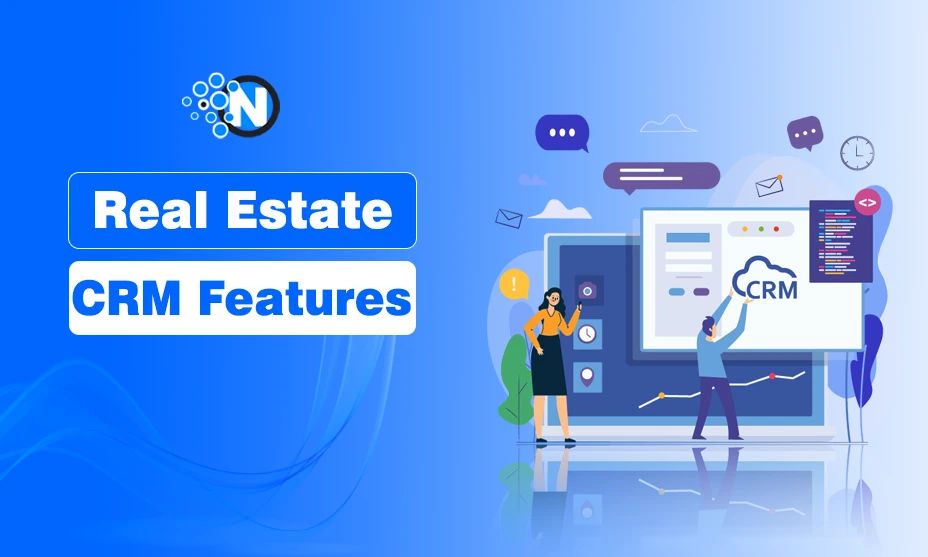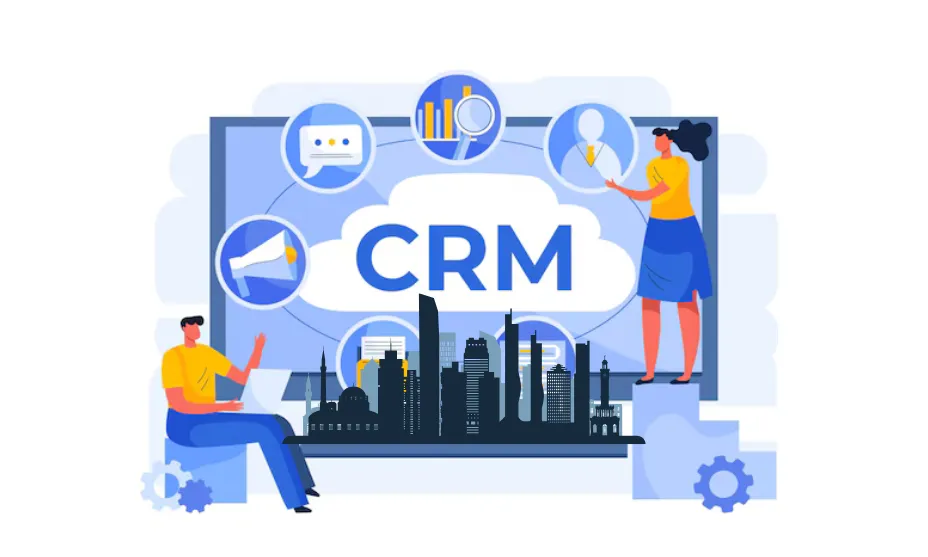Top 10 Real Estate CRM Software Features For 2025

Real estate works as a field of connections between people. Real estate agents, brokers, and property managers require contact management and lead tracking capabilities, allowing them to launch into their day without becoming overwhelmed by tasks.
The concept of CRM in real estate manages client interactions through centralized systems while automating repetitive work and maintaining compliance with lead and deal tracking requirements.
The year 2025 requires real estate agents to go beyond basic contact management because their software needs artificial intelligence, automation, and integration capabilities with property platforms. Your productivity and revenue rise when you select software systems equipped with major CRM features for real estate management during 2025, regardless of whether you operate alone or as part of a bigger brokerage. So, what should you look for?
In this blog post, I have listed the 10 features real estate professionals should look for when selecting real estate CRM software.
Let’s start!
What is Real Estate CRM Software?
REsimpli Real Estate CRM Software is a specialized tool designed to help real estate agents and brokers manage their communications with clients and leads more efficiently.
CRM in real estate manages database for storing contact information, tracking communication history, managing leads, and organizing appointments. It helps them manage their clients in the best way possible.

Top 10 Real Estate CRM Software Features
1. Lead Management and Automation
The core function of any CRM system in real estate revolves around lead management. A top-tier CRM should:
- Create lead capture capabilities from various sources, including websites, social media platforms, and listing marketplaces.
- Assign and sort leads immediately following an evaluation of client interaction levels.
- Use lead scoring to distinguish between high-value clients.
- Deliver automated reminder communications to maintain engagement and avoid lost opportunities.
Real estate professionals face the challenge of being outrivaled by competitors who maintain better organization and timely responses when leads go unattended.
2. AI-Powered Insights and Predictive Analytics
Real estate CRM software receives an upgrade through artificial intelligence technology. Through analytical inspection, AI systems identify which customers display readiness to convert into leads. These tools allow agents to:
- Focus on leads at their decision-making stage.
- Receive AI-powered recommendations on how to engage with clients.
- Get alerts about deal opportunities directly.
- Use predictive analytics to select the ideal leads at optimal times for engagement.
3. Multi-Channel Communication
CRM solutions that operate in modern real estate environments need to handle communication across various platforms, including:
- Email communication
- SMS messaging
- Social media messaging
- Website chatbots
- Phone calls
The CRM system brings every interaction under one roof, allowing users to pick up previous conversations and optimize follow-up efforts. Today’s clients want fast replies, which produce better results when agents maintain a unified communication system.
4. Automated Drip Campaigns
Not every lead falls into the category of being prepared to undertake a buying or selling transaction today. CRM software features automated drip campaigns as one of its essential components. These pre-scheduled emails or text messages, sent at regular intervals, aim to cultivate interest among undecided leads.
Drip campaigns:
- Maintain brand awareness throughout all phases of the buying process.
- Provide market information to potential buyers and sellers.
- Deliver timely property listings related to the market of interest.
- Help agents increase conversion rates while reducing manual messaging burdens.
5. Customizable Pipelines and Deal Tracking
A superior CRM system enables agents to define their sales pipelines as customizable versions that monitor deal development. These tools provide:
- A breakdown of the sales process into detailed stages that users can follow.
- Important deadline warnings and alerts for missing documents.
- Revenue prediction tools for monthly and annual financial planning.
- Efficient deal organization to prevent delays and complete transactions faster.
6. Mobile Accessibility for On-the-Go Agents
Real estate operates as a fast-paced field that requires agents to function away from traditional office environments. A real estate CRM system needs a mobile application that provides full functionality for client info management and communication capabilities.
Throughout the day, agents need mobile CRM access to maintain productivity during property visits and meetings.
7. Integration with MLS and Property Listing Platforms
In the modern real estate industry, CRM software connects seamlessly with Multiple Listing Services (MLS) and major real estate platforms such as Zillow, Realtor.com, and Redfin.
Agents benefit from this integration through:
- Automatic addition of new listings and immediate access to current property details.
- Real-time property data to provide accurate market information.
- Full and accurate property insights for clients.
Without MLS integration, real estate agents struggle with outdated property details and excessive manual data entry.
8. Smart Task and Appointment Scheduling
Scheduling is one of the biggest challenges real estate professionals face. CRM software simplifies this process with intelligent scheduling capabilities that:
- Sync with Google Calendar and Outlook.
- Send automated confirmation messages to meeting attendees.
- Allow clients to schedule meetings online without back-and-forth emails.
With automated scheduling, agents can focus more on closing deals instead of arranging meetings.
9. Secure Document Management and E-Signatures
Real estate transactions involve extensive paperwork, including contracts and disclosure documents. A top CRM system offers document management functionality to simplify legal documentation.
The system should:
- Store and organize files with full access.
- Enable electronic signature requests for quick processing.
- Track document movement and send alerts for missing signatures.
Document management within the CRM system prevents deal delays and reduces risks associated with lost documents.
10. Performance Analytics and Reporting
The final major benefit of CRM software is its reporting functionality, which provides essential performance data. Agents and brokers use analytical tools to measure:
- Marketing effectiveness, identifying both successes and failures.
- The most profitable lead sources with the highest return on investment.
- Revenue tracking, defining objectives and monitoring achievements.
Detailed reports help real estate professionals refine their strategies and maximize financial returns.
Choosing the Right Real Estate CRM in 2025
With so many CRM features available, selecting the right platform can be overwhelming. To avoid unnecessary features and costs, your business must determine its specific needs before choosing a CRM solution.
When evaluating CRMs, ask yourself:
- Does it integrate with my current tools, such as MLS, email, and social media?
- Is the workflow customizable, and does it support automation for repetitive tasks?
- Does the mobile app offer the same capabilities as the desktop version?
- Does it include AI-driven analytics to improve decision-making?
- Are document storage and e-signature processes secure and efficient?
By considering these factors, you can find a CRM solution that improves efficiency, enhances client interaction, and accelerates deal closures.
Future-Proof Your Real Estate Business
The approaching year 2025 demands that real estate professionals adopt CRMs with advanced automation, AI capabilities, and seamless integrations to stay competitive. Start your search now to position yourself for future success in the evolving real estate industry




